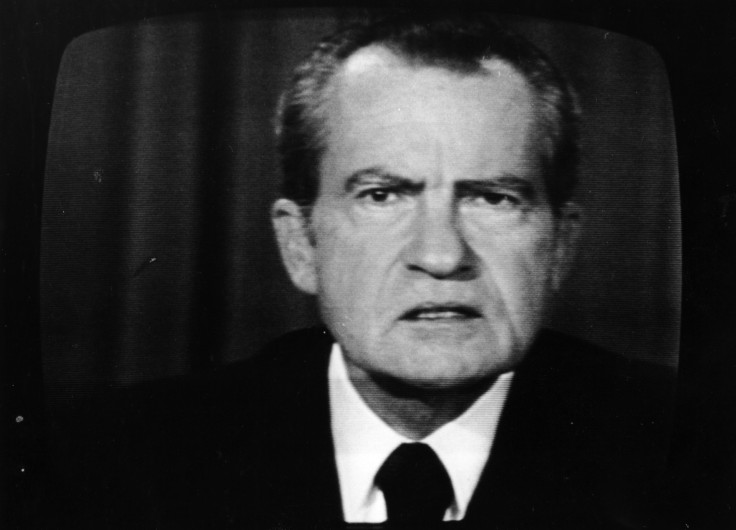What Was The Saturday Night Massacre? Trump's Sally Yates Firing Compared To 1973 Nixon Scandal

Pundits and voters alike compared President Donald Trump to his predecessor Richard Nixon Monday after the recently sworn-in Republican fired acting Attorney General Sally Yates for not supporting his policies.
Yates, who said she and the Justice Department would not defend Trump's executive order creating a travel ban on people coming from seven majority Muslim countries, was dismissed Monday night after taking a stand against the president. The White House followed her removal with a strongly worded statement alleging Yates — who was left over by the Obama administration — had "betrayed" the department.
Trump replaced Yates with Dana Boente, the U.S. attorney for the eastern district of Virginia. Also Monday, he appointed a new director for Immigration and Customs Enforcement, ousting Daniel Ragsdale and replacing him with Thomas D. Homan. The White House didn't give a reason, but Ragsdale planned to stay with the agency, CBS News reported.
In the hours that followed, the term "Saturday Night Massacre" trended on Twitter as people linked Trump's actions to a 1973 Nixon incident, USA Today reported. The Saturday Night Massacre was part of the Watergate controversy during Nixon's presidency. Following a break-in to the Democratic National Committee's Watergate headquarters in June 1972, Attorney General Elliot Richardson appointed lawyer Archibald Cox to investigate as special prosecutor.
In the summer of 1973, Cox subpoenaed about 10 hours of taped conversations from Nixon's Oval Office that revealed the president's involvement. Nixon tried to dodge the request, suggesting a compromise, but Cox wouldn't budge — and gave a news conference stubbornly demanding the recordings.
As a result, the president told Richardson and Deputy Attorney General William Ruckelshaus to fire Cox. The men declined and resigned in what they'd later say was a simple decision. The duty fell to Solicitor General Robert H. Bork, who dismissed Cox and cleared the way for Nixon to reassign the Watergate investigation to the Justice Department, according to the Washington Post.
"All of this adds up to a totally unprecedented situation, a grave and profound crisis in which the President has set himself against his own attorney general and the Department of Justice," journalist John Chancellor said on the radio at the time. "Nothing like this has ever happened before."
Nixon himself resigned in 1974 amid calls for his impeachment.
© Copyright IBTimes 2025. All rights reserved.






















